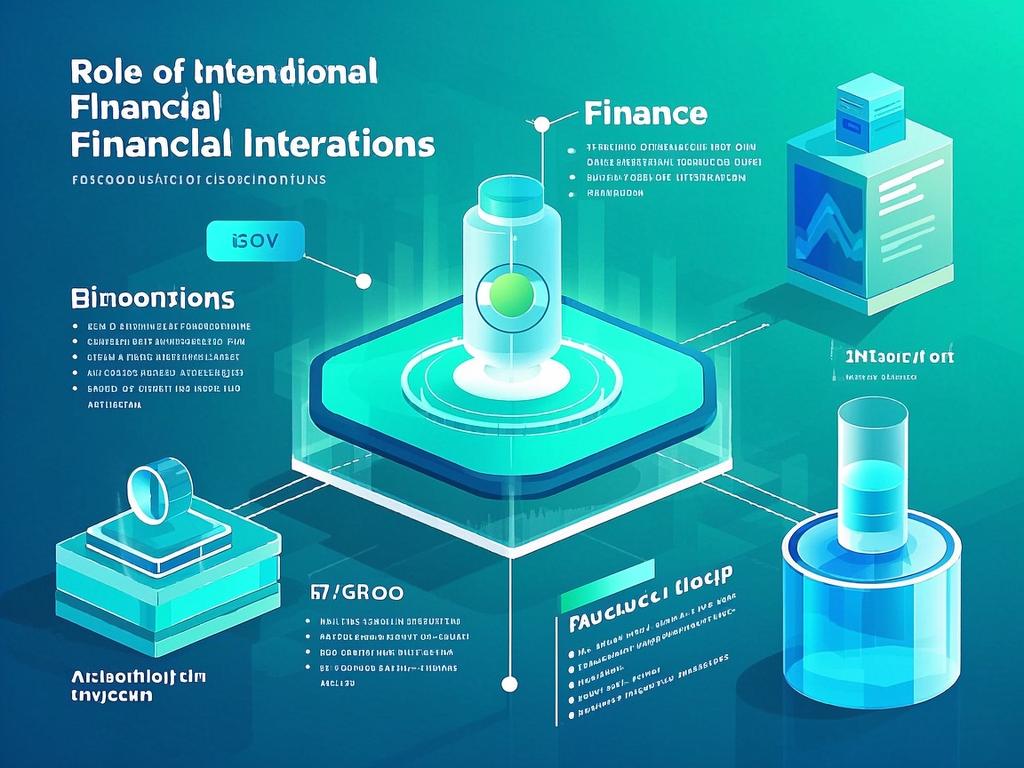
# The Role of International Financial Institutions in Biotech Finance
In the ever-evolving landscape of finance, few sectors are as dynamic and promising as biotech. The biotech industry has the potential to revolutionize healthcare, agriculture, and environmental sustainability. However, its growth and development are heavily reliant on significant financial investments. Enter international financial institutions (IFIs), which play a crucial role in shaping the biotech finance ecosystem.
Biotech, a cutting-edge field at the intersection of biology and technology, has witnessed exponential growth in recent years. It encompasses a wide range of activities, from developing innovative drugs and therapies to engineering genetically modified organisms for agricultural purposes. The global biotech market is projected to reach a staggering [X] billion by [Year], growing at a CAGR of [X]% from [Year] to [Year]. This growth is fueled by increasing demand for better healthcare solutions, a growing aging population, and a heightened focus on sustainable agriculture.
IFIs, such as the World Bank, International Monetary Fund (IMF), and regional development banks, have been actively involved in biotech finance. They recognize the potential of biotech to address some of the most pressing global challenges, including poverty, disease, and environmental degradation. By providing financial support, technical assistance, and policy advice, IFIs aim to foster the development of the biotech sector in both developed and developing countries.
One of the key ways IFIs contribute to biotech finance is through direct lending. They offer loans to biotech companies, research institutions, and government agencies to fund research and development (R&D) projects, infrastructure building, and technology transfer. These loans often come with favorable terms, such as low interest rates and long repayment periods, to encourage investment in biotech. For example, the World Bank has provided significant financing to biotech projects in Africa, Asia, and Latin America, helping to build local capacity and promote the adoption of biotech solutions.
In addition to direct lending, IFIs also play a role in facilitating private sector investment in biotech. They act as intermediaries, connecting biotech companies with investors and providing risk mitigation tools. This includes offering guarantees to investors, which reduce the perceived risk of investing in biotech projects and make them more attractive to private capital. By leveraging their resources and credibility, IFIs help to bridge the funding gap in the biotech sector and enable the commercialization of innovative biotech products and services.
IFIs also contribute to biotech finance through their support for policy development and regulatory frameworks. They work with governments and other stakeholders to develop policies that promote the growth of the biotech sector while ensuring the safety and ethical use of biotech technologies. This includes providing guidance on intellectual property rights, biosafety regulations, and access to affordable biotech products. By creating a conducive policy environment, IFIs help to attract investment and encourage innovation in the biotech industry.
However, the role of IFIs in biotech finance is not without its challenges. One of the main concerns is the potential for conflicts of interest. IFIs are often influenced by political and economic considerations, which can sometimes lead to decisions that may not be in the best interests of the biotech sector or society as a whole. For example, they may be pressured to support biotech projects that are driven by short-term economic gains rather than long-term social and environmental benefits.
Another challenge is the limited availability of financing for early-stage biotech companies. These companies typically face higher risks and uncertainties, making them less attractive to traditional lenders and investors. As a result, many promising biotech startups struggle to secure the funding they need to grow and develop. IFIs need to find ways to better support early-stage biotech companies, perhaps through the creation of specialized funds or the provision of more flexible financing options.
Furthermore, there are concerns about the potential impact of biotech on biodiversity, human health, and food security. IFIs need to ensure that the biotech projects they finance are conducted in a responsible and sustainable manner, taking into account these potential risks. This requires加强监管和透明度,以及促进公众参与决策过程。
Despite these challenges, the role of IFIs in biotech finance remains crucial. Biotech has the potential to transform the world, and IFIs have a responsibility to support its development in a way that benefits society as a whole. By providing financial support, technical assistance, and policy guidance, IFIs can help to accelerate the growth of the biotech sector, drive innovation, and address some of the most pressing global challenges.
In conclusion, the biotech industry is at a critical juncture, and the role of IFIs in biotech finance will be increasingly important in the coming years. As the demand for biotech solutions continues to grow, IFIs need to adapt and innovate to meet the evolving needs of the sector. They need to address the challenges they face, such as conflicts of interest, limited financing for early-stage companies, and potential risks to biodiversity and human health. By doing so, they can play a key role in shaping the future of biotech finance and ensuring that it contributes to a more sustainable and prosperous world. So, what are your thoughts on the role of IFIs in biotech finance? Do you think they are doing enough? Or do you have any suggestions for how they can improve their support for the biotech sector? Let's start a conversation!

